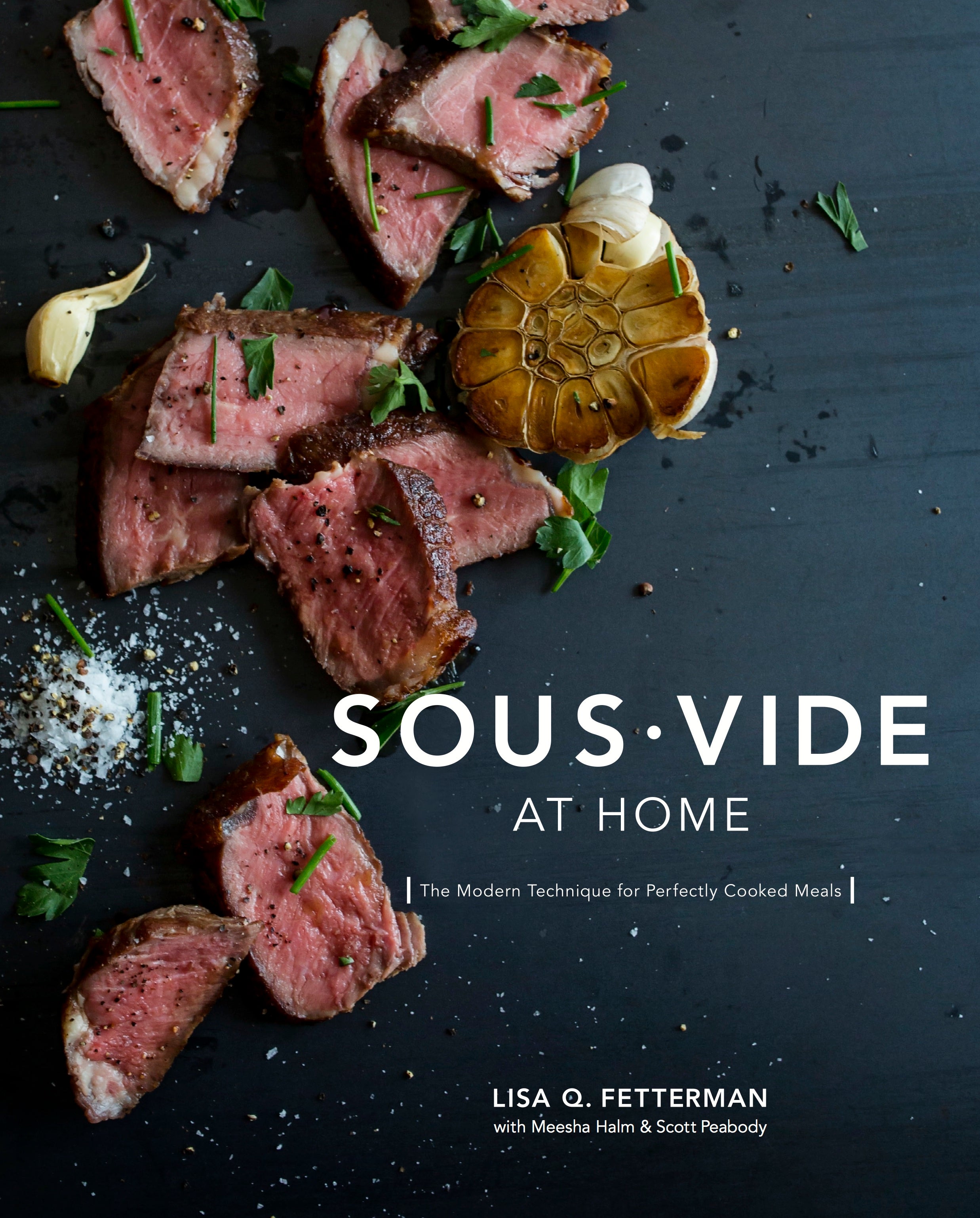















For anyone who has eaten only dry pork chops, sous vide pork chops will be a revelation: They’re juicy, tender, and packed with flavor. I prefer the taste and marbling of pork from heritage breeds (like Berkshire) over the typical mass-produced pork, which has been bred to be as lean as possible, but sous vide will produce succulent results in either case. The fat cap is an important element of this recipe, since it renders and is used to cook the vegetables, so be sure to look for a chop with a good amount of fat left on.
This recipe is a good example of how cooking sous vide can be time efficient: The vegetables can be cut while the pork is cooking, so the dish comes together quickly. It’s also a great way to showcase summer produce, but pork chops are delicious year-round, so in winter or fall, swap out the corn, beans, and peppers for in-season vegetables, such as Brussels sprouts and sweet potatoes. Just follow the same procedure for charring them one by one with the rendered pork fat.
4-6 servings
- Preheat your sous vide water bath to 58°C (136.4°F).
- Place the pork chops in a gallon-size freezer-safe ziplock bag in a single layer with no overlap (you may need two bags, depending on the size of the chops), then seal using the water displacement method.
- When the water reaches the target temperature, lower the bagged pork chops into your sous vide bath (making sure the bag is fully submerged) and cook for 1 hour.
- When the chops are ready, remove the bag from the water. Line a platter or tray with paper towels and transfer the chops to the platter, discarding the liquid in the bag. Pat the chops thoroughly dry with more paper towels and then season them on both sides with the cumin, paprika, salt, and black pepper. Rub the chops on both sides with 1 teaspoon of the oil, which will help the meat brown evenly in the pan.
- Preheat the oven to 175°F. Heat the remaining 1 tablespoon oil in a large cast-iron skillet over medium-high heat until it shimmers. Grab the pork chops with tongs and place them, fat side down, in the pan, holding them together on their side with the tongs to allow the fat cap to render and crisp, 2 to 3 minutes. Once the fat has finished rendering, lay the chops down in the pan and brown (the spices on the meat will cause it to brown quickly), turning once, about 1 minute per side. (Depending on the size of your pan, you may need to cook the chops in two batches.)
- Transfer the chops to a heatproof plate or sheet pan and keep warm in the oven until you’re ready to serve. The skillet will be coated with rendered pork fat. Pour all but 1 teaspoon of the fat into a small heatproof bowl and set aside to use for cooking the rest of the vegetables. If the chops don’t render enough fat to yield 1 teaspoon to cook each vegetable (at least 2 tablespoons total), add olive oil to make up the difference.
- Add the corn and a pinch of kosher salt to the skillet and cook over medium-high heat, stirring occasionally, until the kernels blister and char, about 2 minutes. Transfer the corn to a bowl. Repeat this process to cook the remaining succotash vegetables (beans, Padrón peppers, bell pepper, and onion) one at a time, adding 1 teaspoon of the reserved rendered fat (or olive oil) and a pinch of salt to the pan before each addition, and transferring each cooked vegetable to the bowl holding the corn.
- When all of the vegetables have been cooked, add 1 teaspoon of the rendered fat to the pan, add the garlic, and sauté over medium-high heat just until aromatic, about 30 seconds. Stir in the reserved cooked succotash vegetables and heat just until warmed through, about 1 minute. Remove the pan from the heat and return the vegetables to the bowl. Stir in the lime juice and basil and season with salt and pepper.
- To serve, divide the succotash among individual plates and top with a pork chop. If you are serving more than four people, transfer the pork chops to a cutting board, cut the meat off the bone, slice the meat on a slight diagonal against the grain, and divide the slices among the plates, arranging them on the succotash.
Reprinted with permission from Sous Vide at Home, by Lisa Q. Fetterman, copyright © 2016, published by Ten Speed Press, an imprint of Penguin Random House LLC.
